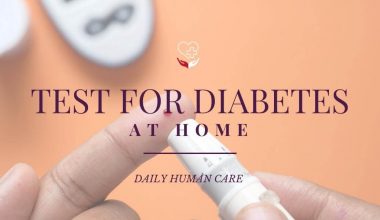Table of Contents
Early Detection and Symptoms of Kidney Cancer
Kidney cancer is a severe medical condition that can profoundly impact one’s health. Detecting it early can greatly improve treatment outcomes and quality of life. In this article, you can explore the crucial topic of kidney tumor symptoms and the importance of early detection.
that can profoundly impact one’s health. Detecting it early can greatly improve treatment outcomes and quality of life. In this article, you can explore the crucial topic of kidney tumor symptoms and the importance of early detection.
Unveiling Kidney tumor:
Kidney tumor, also known as renal cell carcinoma, is a type of cancer that originates in the kidneys. It often develops without noticeable Kidney Cancer Symptoms in the early stages, making regular screenings and awareness vital for timely diagnosis.
The Subtle Clues: Symptoms
- Blood in Urine: Hematuria, or blood in the urine, is one of the most common signs of this cancer. It can range from pinkish to dark red in color and may appear intermittently.
- Persistent Pain: Dull, persistent pain or discomfort in the back or side, especially near the kidneys, should not be ignored. This pain may not respond to conventional treatments and might worsen over time.
- Lump or Mass: A palpable lump or mass in the abdomen or side could indicate a kidney tumor. It’s essential to have any unusual lumps examined by a medical professional.
- Fatigue and Weight Loss can lead to unexplained fatigue, weakness, and unintended weight loss. These symptoms can be associated with various conditions, so consulting a doctor is crucial.
- Fever and Night Sweats: In some cases, it may cause persistent fever and night sweats. If these symptoms accompany other kidney tumor signs, it’s recommended to seek medical attention.
Taking Action: Early Detection Matters
The key to effective kidney tumor treatment lies in early detection. Regular health check-ups, especially if you have risk factors such as a family history or certain genetic conditions, can help identify potential issues.
Navigating Screening Guidelines
Screening tests for kidney tumors are typically recommended for individuals with specific risk factors. These may include:
- Family History: Individuals with a family history are at a higher risk and should consider regular screenings.
- Smoking: Tobacco use is a significant risk factor for this cancer. If you smoke or have a history of smoking, screenings are advisable.
- Obesity: Having excess weight or being obese elevates the likelihood of developing kidney tumor. Maintaining a healthy weight and discussing screenings with your doctor is important.
- High Blood Pressure: Hypertension can be a risk factor for kidney tumors. Managing blood pressure and staying vigilant about potential symptoms is crucial.
Empowering Patients: Awareness
Raising awareness about this cancer and its symptoms is essential for early detection. Individuals should be proactive about discussing any concerning symptoms with their healthcare providers and advocating for appropriate screenings if they have risk factors.
Treatment Options: Tailored Approaches
Upon diagnosis, your medical team will develop a personalized treatment plan based on factors like the stage of cancer, overall health, and your preferences.

Treatment options for this cancer include:
- Surgery: Surgery to remove the tumor or the entire kidney (nephrectomy) is a common treatment for localized kidney tumors.
- Targeted Therapy: Targeted medications work to hinder particular proteins that play a role in the proliferation of cancerous cells, disrupting their development.
Also, read 10 Ways to Keep Your Body Healthy
- Immunotherapy: Immunotherapy assists the immune system in identifying and combating cancerous cells by prompting an immune response, enhancing the body’s natural defenses.
- Radiation Therapy: Radiation therapy uses high-energy rays to destroy cancer cells or shrink tumors.
- Chemotherapy: Although less commonly used for kidney tumors, chemotherapy may sometimes be considered.
In Conclusion
Understanding the signs of Kidney Cancer and the importance of early detection can significantly affect a person’s health and well-being. If you or a loved one experience any of the mentioned symptoms, don’t hesitate to seek medical attention. Kidney Cancer is treatable when caught early, and staying informed is the first step toward better health.
Remember, your health is a priority, and taking action today could make a world of difference tomorrow.


